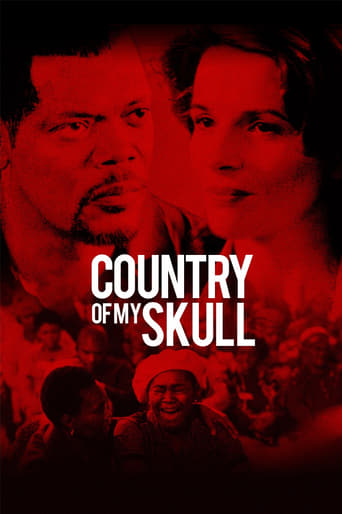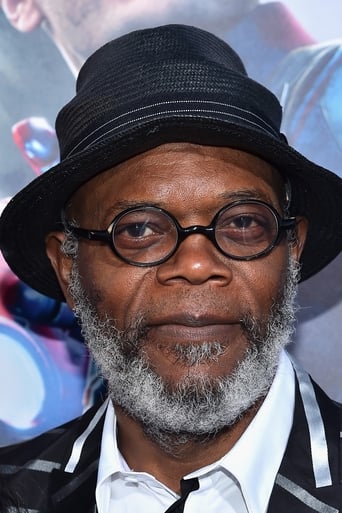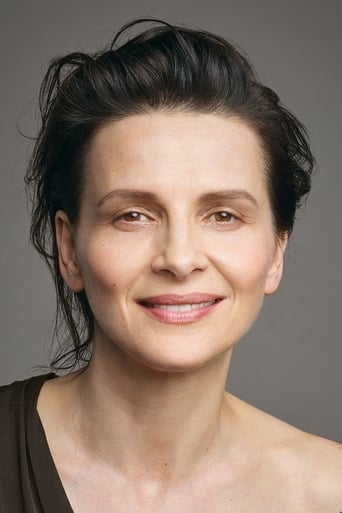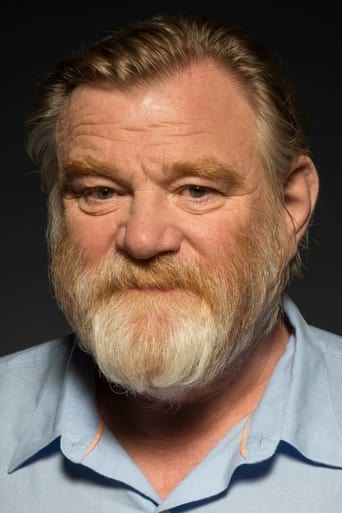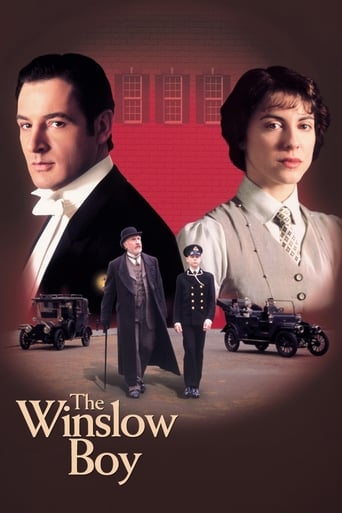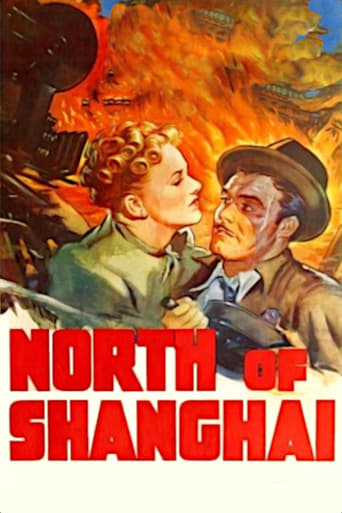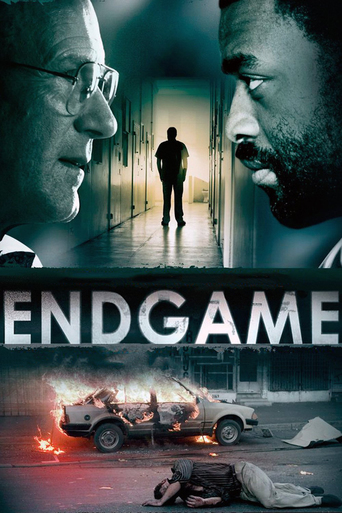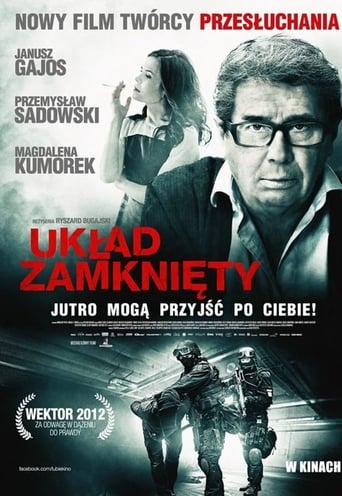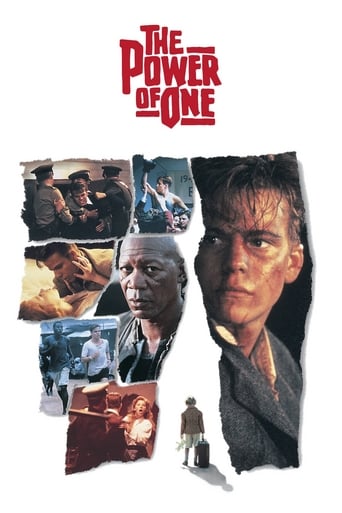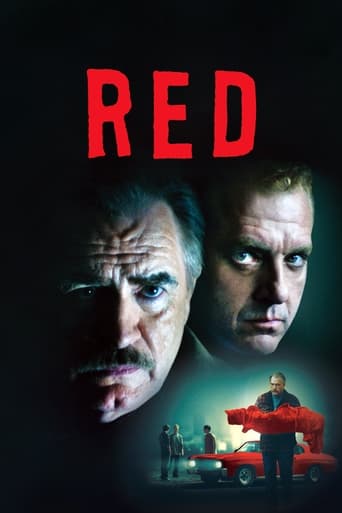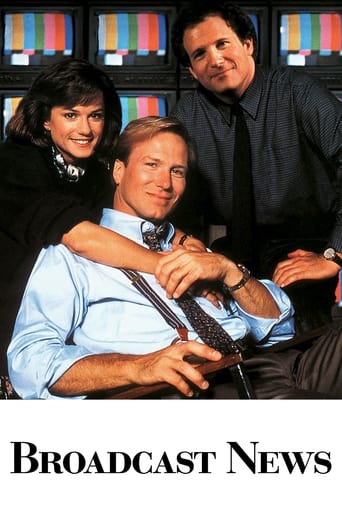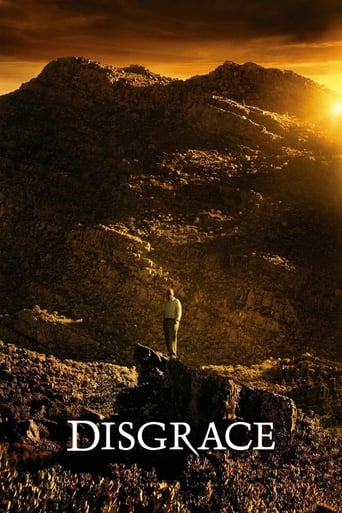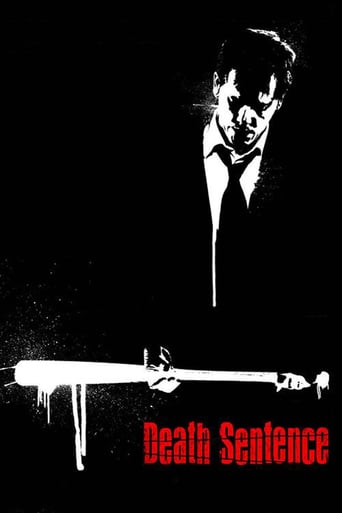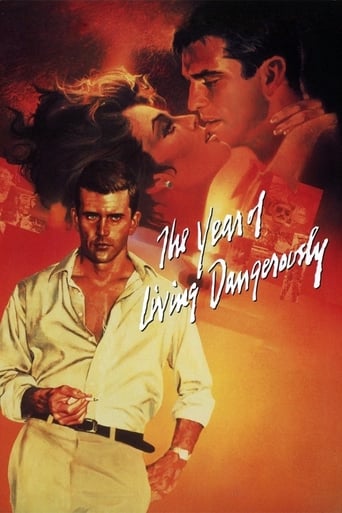In My Country (2005)
An American reporter and an Afrikaans poet meet and fall in love while covering South Africa's Truth and Reconciliation Commission hearings.
Watch Trailer
Cast


Similar titles
Reviews
It is not deep, but it is fun to watch. It does have a bit more of an edge to it than other similar films.
A great movie, one of the best of this year. There was a bit of confusion at one point in the plot, but nothing serious.
I didn’t really have many expectations going into the movie (good or bad), but I actually really enjoyed it. I really liked the characters and the banter between them.
There are moments in this movie where the great movie it could've been peek out... They're fleeting, here, but they're worth savoring, and they happen often enough to make it worth your while.
It's a shame that I didn't get the emotional punch I felt as if I was supposed to have when watching In My Country, Country of my Skull to many others. You cannot force emotion and you cannot force an opinion on a film so whilst In My Country is nicely unfolded and is visually engaging for what it is, the fact that some people are pouring their hearts out in apparent regret at various points over horrific prior activity and I'm not feeling the pinch, I suppose you have to consider the film a minor failure.But why is it that In My Country doesn't pack the necessary heat to make one identify and feel upset for the characters on screen? I think a lot of it is down to the overall approach director John Boorman adopts. The film feels like several things at once rather than an actual case-study of post-Apartheid era events that will change and affect lives just as lives were changed and affected during the era. You might argue that the best way to tackle historical issues that deal with human cruelty to other humans is to set whatever story or narrative you're doing during the actual time thus giving a first hand account of what went down and how. Many films have done this in the past but films such as The Pianist and perhaps more notably The Deer Hunter are so vast in their scale that they manage to cover life prior to 'the event'; the event(s) themselves and then the aftermath of it all through either escape or returning to their former lives before 'the event'.Interestingly, both those films look at prisoner of war scenarios, Jews to the Nazis and Americans to the Vietnamese, respectively. In My Country is more a look at what happens after 'the event', that being the Apartheid and all the atrocities that befell South Africa midway through the twentieth century. Trouble here is that the best the rest of the world can do here is show up, look glum at a couple of press conferences in which South African men of the law admit what they did and then report on the confessions, something that one character cannot even get much space for in his respective newspaper.As a film alone, In My Country works as a re-telling of events that happened after an atrocity but it never delves deep into its subject matter. The Apartheid and the people involved in the Apartheid are not the central characters in fact they are relegated to giving accounts at timely spaced intervals throughout the film that hope to produce the odd tear from the audience. Families of the victims bursting into tears and music native to Africa that balres up try to add to the emotion felt in these scenes. But that's about as good as it gets with the rest of it crossing genres in and out of romance, historical, melodrama and the overall approach that gets tangled up that is the docu-drama.At its very centre, In My Country has an American journalist named Langston Whitfield (Jackson) travelling to a country to cover events few people will have an interest in. It's interesting that a film dealing with the post-Apartheid era would have an American at its core as the lead male and not a South African. There is a South African lead of sorts but they are female and they are pulled up by Whitfield on more than one occasion about the treatment they gave the black inhabitants of the nation. Here there is a confused triangle of conflict; Whitfield is American and complains about Anna Malan's (Binoche) nation's treatment of blacks but as an American he could be read into as representing America, a powerful nation that did nothing about the Apartheid anyway. Then there is the fact Whitfield is black himself and his beef with Malan's nation's treatment of blacks could just be something personal.The fact Malan is female in the first place immediately relegates her from what she would have been had the character been male. As a male, Malan would have made a good foil for Whitfield and the personal prejudice might not have existed as much. It's no secret that women in films have always been lowered somewhat when pitted against men indeed theorists have argued that all films are shot for the male audience in mind so women view things through a male perspective when watching a film. But the fact sexual tension is present in the film between these two adds another layer of confusion and opens up the possibility that the film could fall into the romance as well as the, shock, 'buddy' genre. They fit the bill in the sense they are binary opposites to one another (black/white; male/female; American/South African, etc.) and rebound dialogue off one another but is there really space for 'buddy' content in a film about post-Apartheid South Africa?Twinned with this, there are other sloppy instances that aid the film in its mediocrity. When we first get an introduction of any sorts of chief villain De Jager (Gleeson), it is a visit to his house at night; complete with eerie music and we see a lot of animal heads on his wall he must be a baddie. As well as this clumsy labelling, De Jager's press conference right nearer the end does not act as the final moral catalyst for the film but rather as a plot point for Anna's family to ultimately fall apart which was unfortunate. While it's all nicely unfolded and cute for what it is, In My Country bogs itself down with confused studies and feels like a missed opportunity.
John Boorman, an interesting film maker, takes us to South Africa after Apartheid. Right after the country underwent the big change during the last decade of the last century, a commission was formed in order to hear the atrocities that were committed by the old regime, as the victims, and their families, were invited to come forward and speak to the panel that was investigating. The film is based on a novel by Antjie Krog, but not having read it, one can't really give an opinion about how true the film is to the novel."In my Country", the movie based on this book in its American release, came and went quickly. We tried to see it during its debut, bu it disappeared from local screens in no time. We recently caught the movie on cable.There are some interesting aspects of what the commission was trying to accomplish in trying to bring members of the repressive force to justice. As in other conflicts, the people that were involved in the atrocities keep repeating about how they were following orders, a poor excuse, since no one owned up to having done anything wrong. After all, this was a country in which a white minority controlled a big black majority, and who wanted to keep things unchanged.At the center of the story is Anna Malan, a white South African, who is a radio personality. She follows the commission as more and more people are coming forward to tell their stories. A Washington Post black reporter, Langston Whitfield, is also covering the process. Inevitably, both come together. While they clash at first, they find common ground in their desire to tell the truth about South Africa.Juliette Binoche and Samuel L. Jackson are seen as Anna and Langston. Both give good performances. Brendan Gleeson is seen as the evil De Jager, a man responsible for some of the crimes committed against the poor black of the country who were deemed terrorist by the controlling whites. Menzi Ngubone plays Dumi, Anna's assistant and Sam Ngakone makes a dignified appearance as Anderson, who works for Anna's family.The film is interesting to watch as Mr. Boorman has given us a film to think about the criminal acts that were committed by a group of people that didn't stop to consider the consequences of what they were doing.
I am not a big fan of romances, but in this case I gave it a try because of director John Boorman ["Excalibur," "The Emerald Forest," "Hope & Glory, "Deliverance"] and actors Samuel L. Jackson ["Coach Carter," "Star Wars: Episodes 2 & 3," "The Red Violin"] and Juliette Binoche ["Chocolat," "The English Patient," and the 1992 remake of "Wuthering Heights"].This film was in the better half of Boorman's, while Jackson and Binoche gave top-notch performances. The supporting role of Dumi, played by Menzi Ngubane was excellent, as he acted both as foil and antagonist between the couple.I think the weakest elements of this film are in screenwriter Ann Peacock's dialogue and in the construction of the Anna Malan and brother Boetie characters. The first for taking on just a little too much burden of responsibility, especially in one somewhat uncharacteristic scene at one of the hearings with a particularly gory testimony, and the latter for being incomplete when a key development occurs that should have played more into the storyline and into Anna's reactions.From what I've heard about the book by Antje Krog, I can understand why anyone who had read it before seeing this movie might be disappointed, but it was certainly clear to me by the marketing that this was a romance and not a cinematic litany of the horrors of Apartheid.Given the turbulent background of Apartheid and the South African Truth & Reconciliation Commission proceedings, along with other clues, I was also expecting this to be an adversaries-fall-in-love story, which is the type of romance that I like the most. The collective incidents which drive Anna and Langston together are neither contrived or turgid, and fall comfortably in between, especially because they are juxtaposed with events based in reality. There is one most significant turn at one of the hearings, which, given it is true, would bring any two adversaries together, in peace if not in love.I don't want to give away anything about the extent of their romance, except to say that how it ended up was a pleasant surprise and quite satisfactory. I wish I could recommend two other good romances that end so similarly and satisfactorily, but I would give away the surprise.This film is certainly worth a rental or two, worth showing to friends, but I suppose the disturbing nature of the background events might keep some people from buying it for their home library, but if you bought a copy of "American History X," I think you might want to buy this one.
This movie is flawed, but it's not over-dramatic or misleading. The grieving style of the victims is very realistic. The TRC scenes are a dead ringer for the real thing, and I HAVE seen both. The idea of Ubuntu is simple and the movie doesn't "oversimplify it". It also doesn't state that all South Africans believe in Ubuntu - far from it. It's odd that so many overseas reviewers think they know that the movie is pandering to them and oversimplifying Africa. Cleary it's not simplifying it enough! Sure, having overseas actors means it's a bit foreign, but if there weren't big name international stars in it you might not be able to find the damn thing on this site. oh, and by the way, Realise is spelled with an S in Africa.

